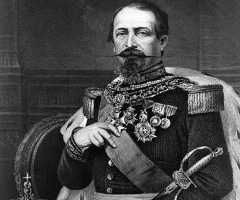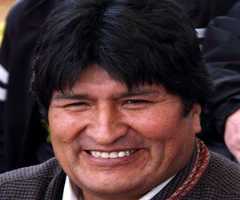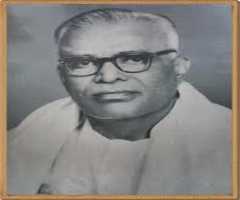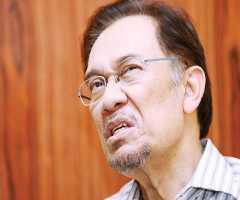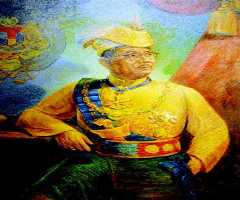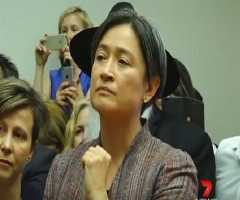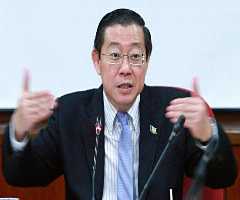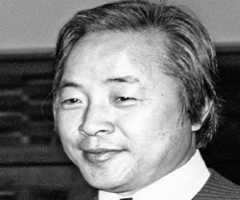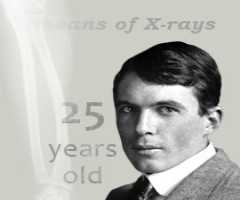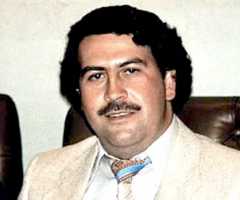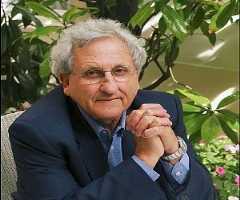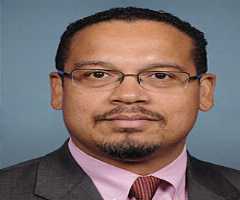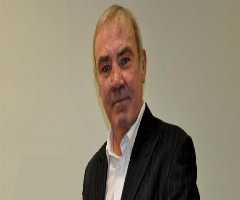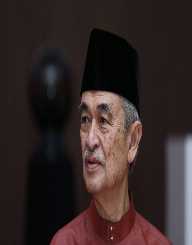
Birth Place : Bayan Lepas, Penang, Malaysia
Zodiac Sign : Sagittarius
Chinese Zodiac : Rabbit
Birth Element : Earth
Abdullah Ahmad Badawi Biography, Life, Interesting Facts
Abdullah Ahmad Badawi is an astute Malaysian politician and a former Prime Minister of Malaysia. Born on November 26, 1939, Abdullah Ahmad Badawi first served as the Member of Parliament for Kepala Batas from 1978 to 2013 before being appointed as the Deputy Prime Minister in 1999 after Prime Minister Mahathir Mohamad had dismissed Anwar Ibrahim. Abdullah later became the prime minister of Malaysia from 2003 to 2009. As the President of the United Malays National Organization (UMNO) which is the largest political party in Malaysia, he led the governing Barisan National parliamentary coalition. Abdullah Ahmad Badawi stepped down after the UMNO General Assembly on April 1, 2009, for his successor Najib Razak. For his service to the nation, King Mizan Zainal Abidin conferred on him the title Tun.
Early Life
Abdullah Ahmad Badawi was born on November 26, 1939, in Bayan Lepas, Penang to father Ahmed Badawi to a prominent religious family. Abdullah Ahmad Badawi had his education at the Bukit Mertajam High School and later at the Methodist Boy’s School for his 6th form. Abdullah Ahmad Badawi then enrolled at the University of Malaysia where he graduated in 1964 with a Bachelor of Arts degree in Islamic Studies.
Early Career
Abdullah Ahmad Badawi went into civil service after his university education by joining the Malaysian Administrative and Diplomatic Corp. Abdullah Ahmad Badawi then became the Director of Youth and Sports and the Secretary of the National Operations Council.
Political Career
Abdullah Ahmad Badawi resigned from civil service in 1978 to contest and won the parliamentary seat for Kepala Batas in northern Seberang Perai. During his tenure of office, Abdullah Ahmad Badawi was appointed Minister of Defense in the Prime Minister Mahathir UMNO administration but lost post after an inside political struggle which divided the UMNO into two camps i.e the Mahathir loyalist on one side and the former Minister of Finance Tengku Razaleigh Hamzah and former Deputy Prime Minister Musa Hitamloyalist on the other side. Abdullah was on the side of Musa Hitam who was his political mentor. Tengku Razaleigh Hamzah later formed political party Semangat 46, but Abdullah did not join and chose to remain with UMNO.
Abdullah Ahmad Badawi was however brought back into the Mahathir cabinet as Minister for Foreign Affairs after a reshuffle in 1991, a position he would hold until 1999. Abdullah had previously in 1988 being made the vice president of UMNO and retained the vice presidential seat in 1990 but lost it in 1993. After the dismissal of the then prime minister, Anwar Ibrahim in 1999, he was appointed the Deputy Prime Minister of Malaysia and Minister for Home Affairs.
Prime Minister
Abdullah Ahmad Badawi graduated from a deputy prime minister to substantial prime minister in 2003 taking over from Mahathir Mohamad. Abdullah Ahmad Badawi also became the President of the United Malays National Organization (UMNO). His primary policy after ascension was to clamp down on corruption. Abdullah Ahmad Badawi did this through empowering anti-corruption agencies and public to expose such practices. With this several key figures and public servants who served in the Mahathir administration were arrested for perceived corrupt practices.
Abdullah Ahmad Badawi also promised to revive the agricultural sector. During his first general election in 2004, he led the coalition Barisan Nasional to sweep 198 seats out of the 220 parliamentary seats. This landslide victory was associated with his determination to rid off corruption out of the system and his posture towards a moderate Islam society. During his tenure, he also improved sectors like security, economics, and foreign policies.
Second Term
Abdullah Ahmad Badawi contested and won the 2008 general election but with great loss of seats. Abdullah Ahmad Badawi had a reduced majority losing some of the richest states to the opposition. This situation created discounted among the ranks of the UMNO with many asking him to step down because of the abysmal performance in the election. Abdullah Ahmad Badawi, however, vowed to continue to pursue his manifesto promises despite the political turmoil. The cry for his resignation heightened with key figures in his party like former Prime Minister Mahathir even though his deputy pledged an unflinching support for his boss.
Abdullah Ahmad Badawi nonetheless went on to announce his cabinet after been sworn in for his second term in March 2008. This time he dropped almost half of the ministers in his previous administration in his 68 appointments. As the pressure of his resignation kept rising, he gave in to the demands and subsequently announced on July 10, 2008, to step down both as Prime Minister and President of the UMNO in June 2009. On April 2, 2009, Abdullah Ahmad Badawi fulfilled his promise and handed his resignation letter to the Yang di-Pertuan Agong. His deputy, Najib was then sworn in as the Prime Minister a day after. Abdullah Ahmad Badawi returned to his constituency Kepala Batas as the Member of Parliament.
Personal Life
Abdullah Ahmad Badawi married twice first to Endon Mahmood, who died on October 20, 2005, of the breast after been diagnosed with the disease in 2003. Abdullah Ahmad Badawi later married Jeanne Abdullah on June 6, 2007, at a private ceremony. Aside from politics, Abdullah Ahmad Badawi was a poet and wrote the poem I seek Eternal Peace which was later translated into over 80 languages and published in 2008.
Honors And Awards
Abdullah Ahmad Badawi has gained several honors and awards through his political career. Such awards and honours include, Ahli Mangku Negara (1971), Kesatria Mangku Negara (1974), Darjah Johan Negeri (1979), Darjah Yang Mulia Pangkuan Negeri (1981), The Kwangha Medal (South Korea, 1983), Grand Cordon of the Order of the Sacred Treasure (Japan, 1991), Grand Cross of the Order of Merit (Chile, 1994), First Class of the Most Exalted Order of the White Elephant (Thailand, 1994), Darjah Gemilang Pangkuan Negeri (1997)First Class of Order of Democratic People's Republic of Korea Friendship (North Korea, 1997) and Darjah Kerabat Johor Yang Amat Dihormati Pangkat Pertama (2004) among several others.
